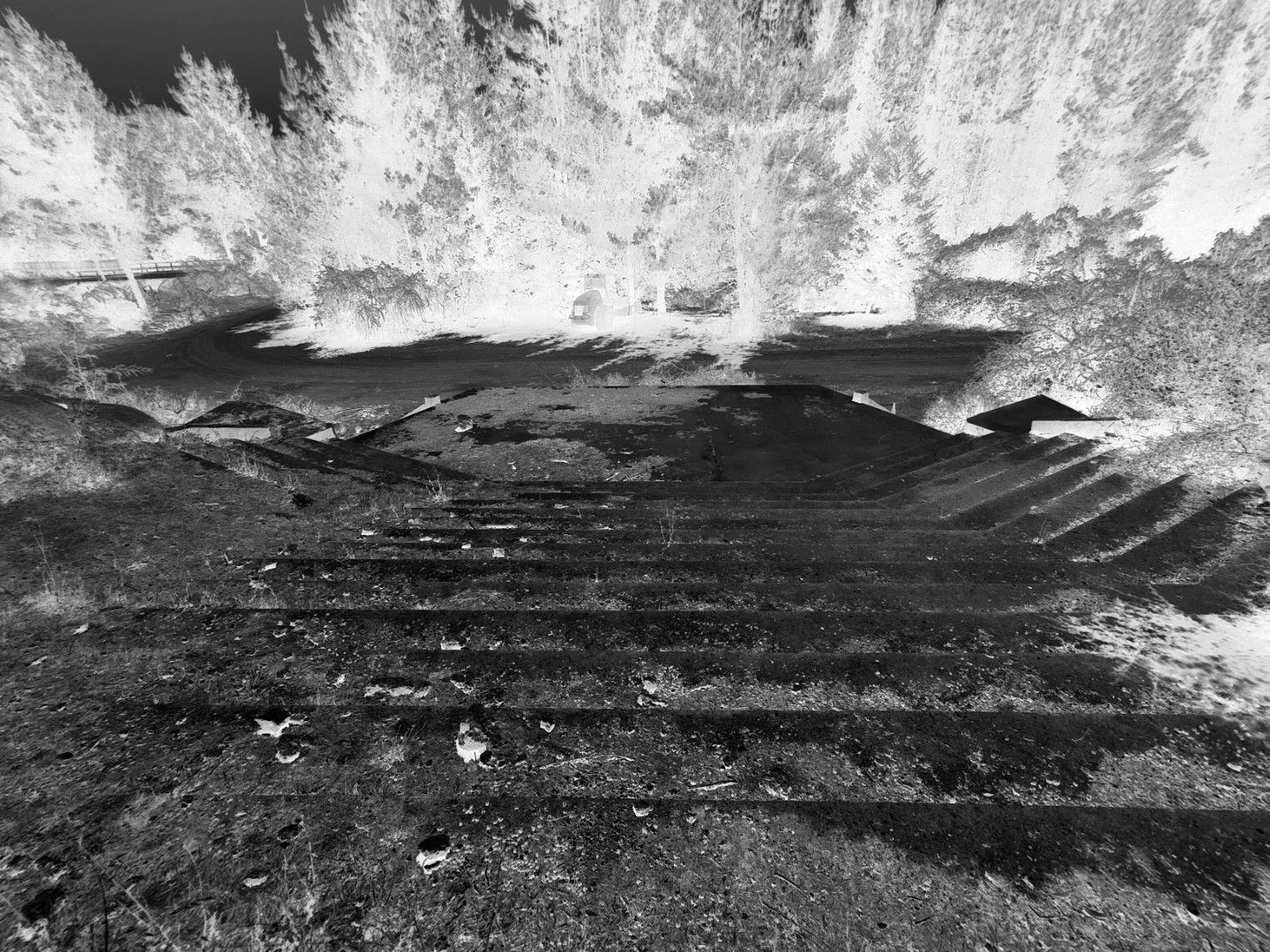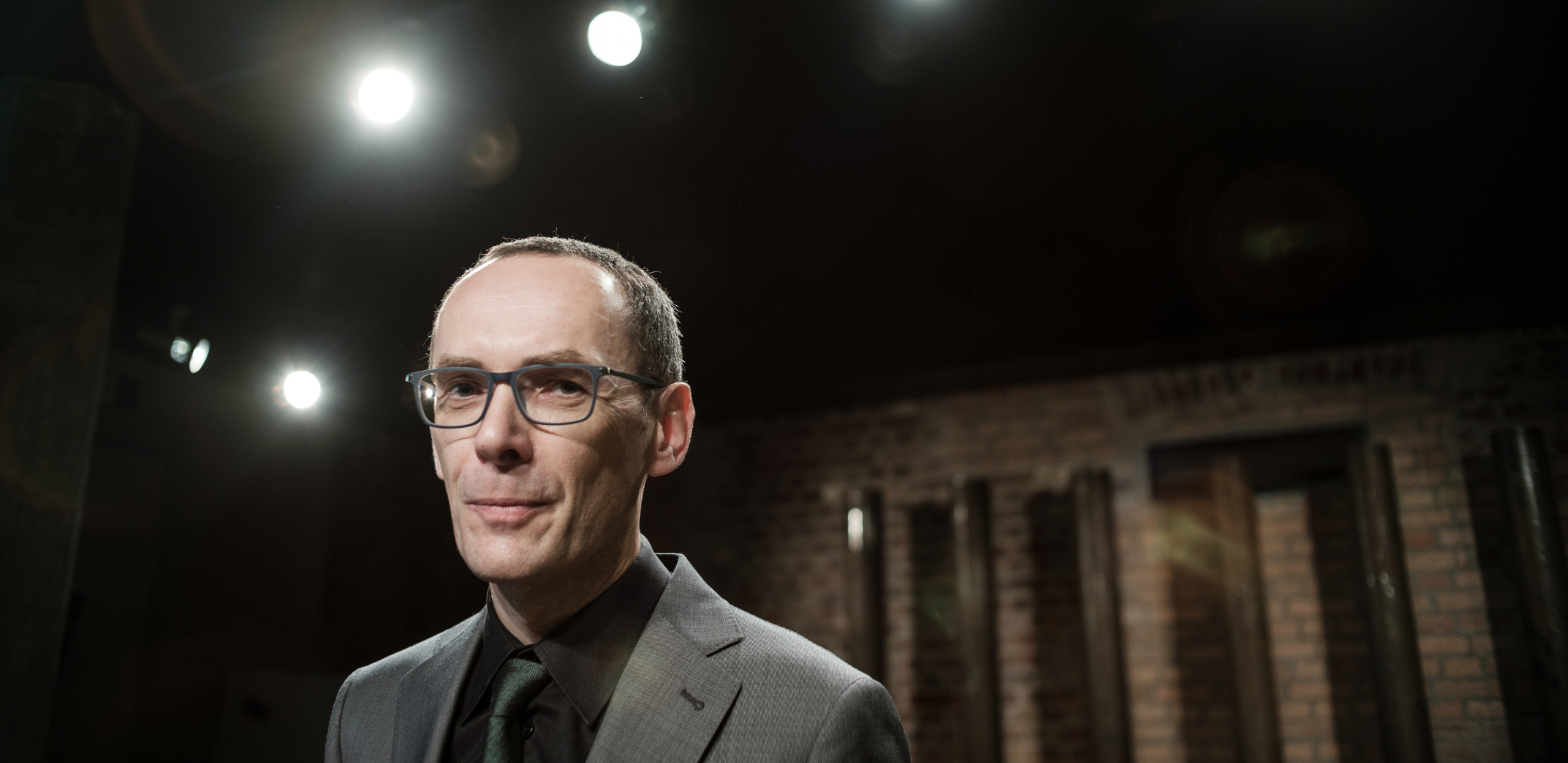The research project “The Performative Realm of ‘Colonia Dignidad,’ a German Enclave in Chile, in Historical and Political Contexts” (Performatywna strefa „Kolonii Godności”, niemieckiej enklawy w Chile, w kontekście historycznym i politycznym) is financed by grant no. 2021/43/B/HS2/00360 from the National Science Centre (Narodowe Centrum Nauki, NCN) under its OPUS 22 Programme. Amount of funding: 325,511 PLN from 7 July 2022 to 6 July 2025 (the project has been extended by one year without additional funding).

A stone theatre located near the entrance to Villa Baviera. In the 1990s, it was the venue for many solidarity performances and rallies conducted by local supporters of the colony. Photograph by Grzegorz Ziółkowski, 16 January 2024
Keywords
Colonia Dignidad, Villa Baviera, Paul Schäfer, contemporary Chilean history and politics, the Cold War, protest actions, religious sect, human rights violations, performativity, posttraumatic culture
The objective
The project aims to explore and interpret the performative realm of Colonia Dignidad (Colony of Dignity), pseudo-religious community rooted in Christianity, founded by German expatriates in Chile in 1961, where a variety of human rights violations and atrocities were perpetrated with impunity over decades. The project intends to elaborate (and possibly confirm) the interim hypothesis that the effective cultivation of the colony’s (mythologised) self-image, which cast it as a hard-working and pious community focused on charity, enabled its longevity and staying power.
The research description
Preliminary research indicates that the Colonia’s performative realm is a vast territory which comprises:
(1) diverse rituals and celebrations as well as gymnastic demonstrations and musical and theatre performances, the latter often used as part of the farm’s complex PR activities and propaganda efforts;
(2) performances by the enclave leader, Paul Schäfer, himself a master manipulator, charismatic preacher and animator;
(3) the Colonia-as-performance (skillful reenactment of a Bavarian village at the foot of the Andes rather than the Alps); and
(4) a plethora of protest actions, such as numerous demonstrations directed against Schäfer and his acolytes, as well as those staged or orchestrated by him and his henchmen.
These operations will be scrutinized in the project’s framework, taking into account their historical and political contexts, and focusing on their consequences and aftermaths.
The project’s inquiries will build upon a variety of sources, including textual, audial, visual and audiovisual, as well as on disparate discourses: academic, journalistic and personal. In the project’s framework, the research hypothesis will be confronted with archival sources, existing findings provided by Chilean and German scholars, and perspectives of selected ex-colonists, representatives of human rights organizations, and film documentarians who have dealt with the subject in their works.
Rationale
Colonia Dignidad was a veritable black hole that crushed together a variety of problematic issues, such as legal and moral responsibility, commemoration, financial and moral restitution, as well as methods of dealing with psychological trauma. They mostly remain unresolved in the Chilean and German societies in which the processes of a broader and deeper critical reevaluation of the enclave have accelerated only recently, prompted by the success of Florian Gallenberger’s blockbuster The Colony, premiered in 2016. Nevertheless, it seems that a multidimensional and interdisciplinary academic debate on the Colonia is only now picking up speed. The project, meanwhile, seeks to transpose it beyond Chilean and German contexts, where it unfolds at present. The topic is salient as the activities of Colonia Dignidad mirror and amplify many major upheavals that have shaken the world over the past six decades, including post-war traumas, divisions and conflicts of the Cold War, religious fanaticism, and rampant child sexual abuse.
The most important results
Interrogation of the Colonia performative realm will contribute to a fuller picture thereof and a more exhaustive understanding of many related problems – moral, legal, and psychological – which result from Colonia’s operations. Additionally, the interdisciplinary investigations carried out in the project framework will enrich the growing body of research in such fields as performance studies and cultural studies, and ultimately help refine their methodologies. Sharing the project’s outcomes in English-language academic publications may finally begin to undo the dearth of academic material on the subject in English and do justice to the subject’s grave importance for better understanding of late modernity.
